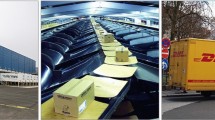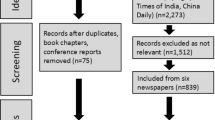Abstract
“Today, the idea of allowing aircraft pilots to operate as they see fit, without any control from the land, is unthinkable. Will the same things apply to ships in twenty to thirty years’ time?”
Current maritime pilotage regimes are clearly seen in some quarters as too restrictive and old fashioned. Change is “in the air” and VTS, pilotage, and the relationship between them cannot be immune to it. Subject to the attainment of the appropriate standards by both ships and their crews there is no practical reason why more flexible Vessel Traffic Management cannot be introduced. The required technology is largely available and, with the introduction of AIS, the required dynamic data can be available. Technical problems foreseen are believed capable of solution. The more significant obstacles to implementation are, therefore, largely political, commercial, organisational, and cultural. These issues are discussed in this paper taking into account the viewpoints of major stakeholders.
Similar content being viewed by others
References
O’Neil, W.:World Maritime Day 1999. In: IMO News, 1999, Issue 3, p. 28.
European Union (EU), Transport Research EURET Maritime Transport:Tools to access VTS and to increase the efficiency of VTS (TAIE). Brussels: DG Transport, European Commission (EC), 1996.
Department for Environment, Transport and Regions (DETR):Review of the Pilotage Act 1987 London: The Stationery Office, 1998.
Ibid., pp. 28, 43
Oudet, L.:Shore-based Pilotage. In: The Journal of Navigation. Vol. 16 (1963), pp. 325–331.
Ramboll, Hanneman & Hojlund AS:EU Maritime Pilotage Study. Brussels: DG Transport, EC, 1995, Section 3.4.
Hadley, M.:Remote Pilotage & Enhanced Navigation Assistance. PhD thesis. Southampton Institute/Nottingham Trent University, UK, 2000, Section 2.12.2
Koopmans, M.:Piloting VTS through uncharted waters. Proceedings of VTS2000. Singapore: Maritime Port Authority of Singapore & International Association of Lighthouse Authorities (IALA), 2000, (Session 5 — Paper 3).
Firnhaber, K.:A pilot’s view on shore based pilotage. Proceedings of6th European Harbour Masters Association Congress. Reykjavik: European Harbour Masters’ Association, 1996, (2).
National Research Council:Minding the Helm: Marine Navigation and Piloting. Washington: National Academy Press, 1995, p. 29.
Op. Cit. 2, p. 24
IMO Resolution A.857(20):Guidelines for Vessel Traffic Services. 1997.
Ibid.
Op. Cit. 8
Op. Cit. 10, p. 336
Corbet, A.G.:Development of vessel traffic services: legal considerations. In:Maritime Policy Management. Vol. 16 (1989), No. 4, p. 277.
Ibid.
Whale, I., Harbour Master, Harwich Haven Authority, April 1998, personal communication.
Harwich pilots, August 1997, personal communication.
O’Neil, W.: Key note speech to VTS2000. Singapore, 2000.
NUMAST:Owners cool on extending VTS responsibility. In: NUMAST Telegraph. February 2000, p. 28.
Op. Cit. 3, p. 9
DETR:Port Marine Safety Code. London: The Stationery Office, 2000.
Burr, A., DETR, April 1998, personal communication.
Institute of Ship Operation, Sea Transport and Simulation (ISSUS), Hamburg University of Applied Sciences:Proposal for EU research project CORINAV. Unpublished document. Hamburg: ISSUS, 2000.
Hinsch, W.:Response to Traffic Situations. Proceedings of the 8th International Symposium on VTS. Rotterdam: 1996.
Lumbers, K., Miller, T., UKP&I Club, May 1998, personal communication.
Op. Cit. 10,, p. 336
Op. Cit. 1, p. 22
Op. Cit. 17,, p. 280
Ibid. Op. Cit. 17,
Op. Cit. 20
Op. Cit. 17,, p. 282
Op. Cit. 1, p. 19
Op. Cit. 10,, p. 185
Op. Cit. 21
Op. Cit.1, p.28
Donaldson, J.:Safer ships, cleaner seas. London: Her Majesty’s Stationery Office, 1994, p. 386.
Op. Cit. 21
Op. Cit. 9
Op. Cit. 10,, pp. 261–262
Author information
Authors and Affiliations
Rights and permissions
About this article
Cite this article
Hadley, M., Pourzanjani, M. How remote is remote pilotage?. WMU J Marit Affairs 2, 181–197 (2003). https://doi.org/10.1007/BF03195043
Issue Date:
DOI: https://doi.org/10.1007/BF03195043




